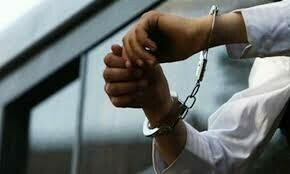KARACHI: Very rarely does one get to see something spectacular on stage and yet find it hard to compliment it because of the contextual gravity of its subject matter. A group from Belgium presented on Friday evening a play titled Body Revolution conceived and directed by Mokhallad Rasem (a theatre practitioner of Iraqi descent) at the World Culture Festival organised by the Arts Council of Pakistan.
Those who were present at the auditorium 1 of the council were spellbound. One is using the adjective ‘spellbound’ in all of its creative glory. For Pakistani theatre lovers, it was something out of the box in every sense of the phrase and yet relatable.
The play doesn’t employ dialogue. Instead, it uses a screen on which images of ravaged towns and cities and of intermittent acts of violence emerge. From that screen, three men, three characters seamlessly blended in with the screen, come out. They are together. And they’re not. They are in the same situation. And they’re not. They have an individual plight. They are suffering collectively, too. They are who they are. And they can be anyone going through volatile times.
Belgian group’s performance at World Culture Festival leaves audience spellbound
The name of the whole saga, Body Revolution, is a give-away. Not in the sense that it spoils the story. There are no lines or dialogue (except when an announcement is made on the PA system that the protagonists seek apology for things such as their suffering). The focus is the ‘body’. The body has a shape, a physical appearance, a palpable existence. When it gets affected by violence, directly or indirectly, wittingly or unwittingly, what changes does it go through? For example, before and during the Arab Spring, how many bodies changed, blossomed, remained intact or were obliterated?
Wait a minute. That would be a simplistic approach to judge a top-notch work of art. What the makers of the play are pointing at is the impact of violence on the soul. The soul is something that can’t be destroyed. Does the soul also get affected by the physical world outside? It does. And that’s exactly what was artistically portrayed through the strong visuals that appeared on the screen like a quilt with crisscrossing seams. Yes, the quilt as a potent symbol.
The most poignant part of the play is that by the time things begin to end, when the characters disappear back into the screen, the last image that appears on the screen reminds one of T S Eliot’s poem, The Wasteland.
Body Revolution is a unique experience.
The actors who take part in the play are Mokhallad Rasem, Mustafa (of Moroccan descent) and Ahsan (of Iranian origin).
Published in Dawn, October 27th, 2024














































Dear visitor, the comments section is undergoing an overhaul and will return soon.